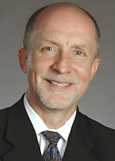Archaeologists, evangelicals critique “Tomb” documentary
Posted: 3/02/07
Archaeologists, evangelicals
critique “Tomb” documentary
By Hannah Elliott
Associated Baptist Press
DALLAS (ABP)—Archaeologists, biblical scholars and Christian leaders are casting doubt on explosive claims about the life of Jesus in a new documentary from Hollywood director-producer James Cameron.
The film, called The Lost Tomb of Jesus, presents evidence producers say could prove Jesus was married to Mary Magdelene and had a son.
At the center of Cameron’s film is a 2,000-year-old limestone tomb discovered in 1980 during an excavation project in Jerusalem. In the tomb, Amos Kloner, an archaeologist from Israel’s Bar Ilan University, found 10 stone burial boxes (also known as ossuaries). Some of the boxes had names inscribed on them: “Jesus, son of Joseph;” “Mary;” and “Judah, son of Jesus.”
Kloner and his team didn’t attach significance to the names when they first unearthed the ossuaries, because the names used were common in Palestine during the time period. However, Cameron (who produced the film) and director Simcha Jacobovici contend the bones could well have been from Jesus of Nazareth’s family.
In a Feb. 26 interview on CNN’s Larry King Live show, Jacobovici said the statistical improbability of having people named Jesus, Mary and Judah in the same tomb lent credibility to the documentary’s claim.
DNA evidence from the tomb showed that the “Jesus” and “Mary” inside were not related, which indicates they could have been married, documentary researchers said. It was unclear whether the researchers tested the DNA from the box containing Judah.
According to the San Jose Mercury News, the archaeologist who first uncovered the ossuaries has criticized the documentary.
“The claim that the burial site has been found is not based on any new idea,” Kloner said. “It is only an attempt to sell. It’s a waste of money.”
Steven Ortiz, a professor of archaeology at Southwestern Baptist Theological Seminary, said most serious archaeologists and experts agree with Kloner.
“It’s a publicity stunt,” Ortiz said, adding the tomb has “been known” for years without any such hubbub. “Jesus was a very common name back then, (as was) Joseph. This isn’t anything unusual. The name Jesus became a unique name only after the resurrection.”
Had a scholarly paper—rather than a movie —publicized the claims, Ortiz said he’d be more ready to seriously consider them from an archaeological standpoint. As it stands, he said, the film’s experts are picking and choosing the facts they prefer to present, rather than telling the whole story.
“From what I’m hearing, already by the second day (after Cameron’s announcement) most scholars are just jumping on him, (saying) ‘how irresponsible,’” he said.
Al Mohler, president of the Southern Baptist Theological Seminary in Louisville, Ky., appeared on King’s show the same night as Cameron and Jacobovici. Like the others, he called the $3.5 million-project “farcical.”
“The archaeologists there in Israel, who are the closest to this [and] who have the greatest expertise, are not only looking at this with skepticism, but basically dismissing its claims,” Mohler said.
“If Jesus had remained in the tomb, first-century opponents of Christianity would most certainly have found his body and put it on public display.”
He later said the evidence from the ossuaries would not stand in a court of law.
“It has to be an evidence trail that makes sense,” he said. “It has to be evidentiary material that fits the context. Nothing could ever prove—there’s no DNA—there’s nothing that could ever prove these bones are the bones of Jesus. It makes no sense.”
Other conservative Christian leaders also criticized the film.
Jim Tonkowich, president of the Washington-based Institute on Religion and Democracy, sent a letter to supporters Feb. 27, calling the work “a cynical ratings ploy that deserves to be buried with all of the other fantastical claims that arise about the ‘real’ Jesus this time of year.” The institute is a watchdog group that attempts to steer mainline Protestant denominations in more conservative directions.
“Much like The Da Vinci Code, the documentary promises a tantalizingly alternative view of biblical events but ultimately offers little more than groundless speculation,” he wrote. “An ossuary labeled ‘Jesus’ is about as specific to Christ as a chunk of wood that is claimed to be a part of the Ark.”
Tonkowich also criticized the Discovery Channel in general for presenting a show that “appears to be designed to tear at the fabric of the faith and hope of billions worldwide.” He said the network should recognize religious faith as “legitimate, credible and beneficial to society.”
Cameron—who won an academy award for directing the film Titanic—had a simple answer for his critics.
“I don’t profess to be an archeologist or a biblical scholar,” the director told Newsweek. “I’m a film producer. I found it compelling. I think we’re on firm ground to say that much.”
News of religion, faith, missions, Bible study and Christian ministry among Baptist churches, in Texas, the BGCT, the nation and around the world.
